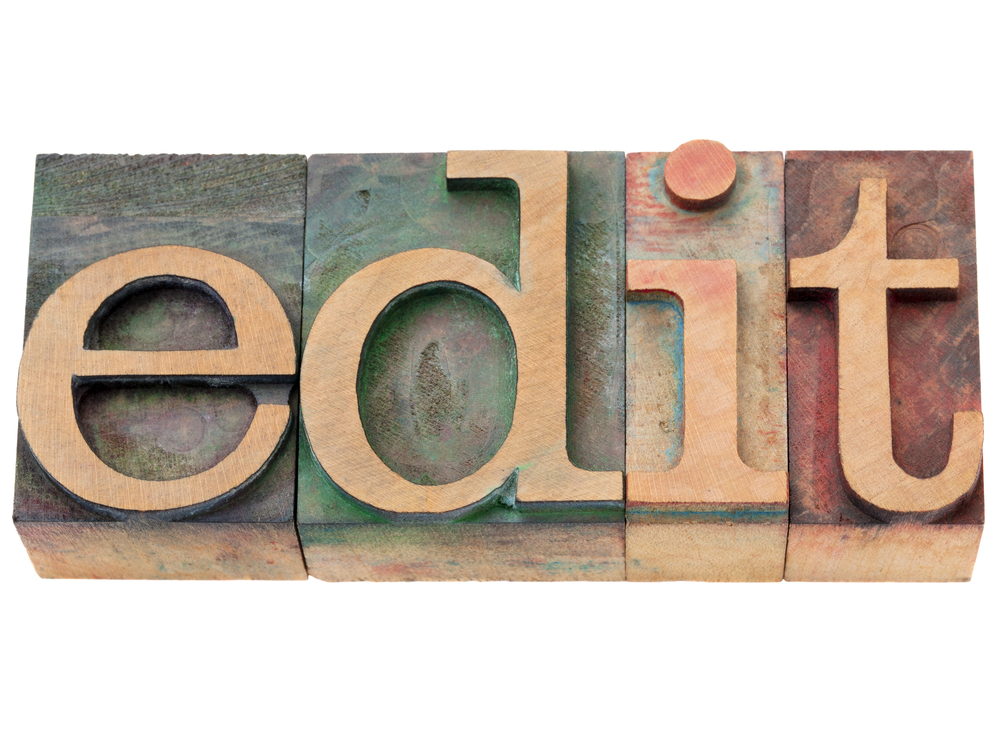You’ve just reread your final draft for the 6,983rd time. Your friends, spouse, co-workers, and mailman all know you’re within an arm’s reach of being done. The next and final step is having your manuscript edited…and by a professional! You’ve carefully screened and chosen someone with editing chops. You’re feeling pretty good about entrusting your baby with this very capable editing wizard who has promised to make your fabulous manuscript even better.
But then…like any new parent, something in your gut doesn’t feel right. Your confidence is slipping and you know that as an indie author your editor must rise to the occasion.
Chances are, you noticed one or more of the following ten signs that your editor wasn’t going to work out after all.
-
No references
Your editor should have experience. He should have people willing to vouch for him.
Don’t be a guinea pig if your expectations are for bookstores and the mass market to pay a premium for your book.
-
Doesn’t use a style guide
Your editor should have an intimate relationship with one of the three big style guides (MLA, APA, and Chicago).
A good editor isn’t just “really good at grammar and stuff.” They are actually trained and have a tried and true process for polishing a manuscript. Style guides are the foundation upon which that process is built.
-
Isn’t responsive to your queries
If they’re not responsive in the earliest stages, consider it a red flag.
Maybe she’s really busy. Maybe she’s only an editor part-time. Maybe she’s working on her own 500-page novel. Whatever her reason, she probably won’t be proactive, diligent, or focused while editing your book.
-
Doesn’t ask clarifying questions during the editing process
A stellar editor goes the distance to make sure your book is kick-ass.
Remember a well-written book is a well-edited book. A major piece of editing is pushing a writer to answer unasked questions and expound on lukewarm points/details. An editor doesn’t just mark your manuscript in red ink, he also asks questions to guide you in strengthening your weaknesses.
-
Unsure about costs or is free
Experienced editors know how much to charge.
They don’t underestimate and they don’t overestimate. They give you a ballpark number of hours it will take and either come in at that number or under. If an editor doesn’t have a standard rate or is willing to edit for free, take your manuscript and run.
-
Doesn’t provide an estimate before starting
Similar to number five, don’t allow your editor to begin working without providing an estimate of costs.
Most hourly rates fall between $35 and $75 an hour. Some editors might also charge by the word. Whatever their rate, make sure you’re made aware of it with an estimate.
-
Made immediate suggestions before reading your work
If an editor is making changes to your work sight unseen, send them packing.
Maybe they’re right and your manuscript is too long, too short, or should be written from a different point of view. But they should take a look first before making snap judgments.
-
Corrected things that weren’t related to clarity, consistency, and focus
Ever seen a perfectly nice car turned into a piece of crap with the addition of parts and pieces it didn’t need?
Don’t let your editor add spinning rims and a blinking spoiler to your manuscript. Every change should be to clarify your content, make it consistent, or sharpen its focus. End of story.
-
Left typos and grammatical errors uncorrected
Editors and proofreaders are different. Editors make suggestions having to do with style, organization, and focus.
Proofreaders only care about mistakes related to typos, grammar, punctuation, and inconsistencies. BUT an editor should not ignore mistakes.
They might miss a few of them, which is normal. But if your manuscript is filled with typos when it goes to your book designer, your editor didn’t do as good a job as they should have.
-
Were done way too fast
Like the writing process, the editing process doesn’t happen in a day.
It takes some time to work through a manuscript. Each manuscript is different, but most manuscripts (not including children’s books) take between 20 and 40 hours.
Your manuscript could take less time or more time. But, It will take more than a couple days. If your editor is done that fast, your editing probably isn’t thorough.
So tell us, what have your editing experiences been?


Thank you! It breaks my heart when people come to me with books that desperately need editing, and they can’t afford editing because they’ve already paid somebody who’s incompetent.
When asking about experience, make sure it’s the right kind of experience. There are a lot of people who will tell you, in complete sincerity, that they’re qualified to edit your book because they teach English classes, or because they have a PhD in English. No. No. No. It’s entirely possible to teach English and not know that the period goes inside the quotes.
Asking about sign #2 above will help weed out those people.